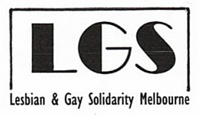




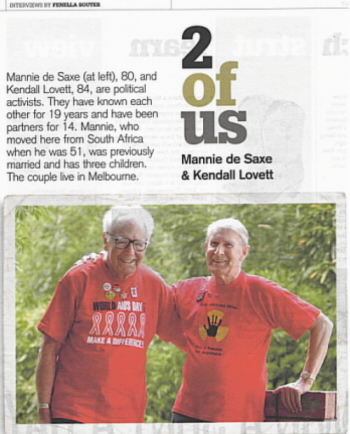
I met Ken in 1988, thanks to Margaret Thatcher. I was already politically on the Left with socialist groups, first the International Socialists, then Socialist Action. I ended up going to a demo [in Sydney] against the introduction in the UK of clause 28, which banned anything to do with homosexuality education in schools. That was how I discovered the activist group called Gay Solidarity and they invited me to one of their meetings.
I was coming out at this stage. My wife and I had separated in 1985, after 31 years of marriage. In 1987, I was in the process of this very difficult transition. I was 61. To start coming out as a gay man at that age was never going to be easy.
When I was young, the pressure was to get married and have a family, so I did that. Ken resisted that pressure all his life. That shows the difference between us.
Anyway, I went to this first meeting at the house of one of the Sisters of Perpetual Indulgence – I’m an honorary rabbi of the order, because I’m the only Jew there – and Ken was at the meeting. When I walked through the door he was staggered and pleased to see an older person, because everyone else was much younger.
For the next five years, we used to go to demos and things as part of a gay group. He and I would go and have lunch or coffee afterwards and we became good friends but he never invited me home. He was always busy with all his activities.
Then one night, in 1993, he invited me to go to a play at the Belvoir. He lived [nearby] in Woolloomooloo, and he said, “You can’t go home, it’s late and all that travelling. Why don’t you come and stay at my place?” That was the start of our relationship.
Falling in love is what happens to younger people, but we were very compatible in so much of what we believed in. The only problem was that he was about to retire and he didn’t have much money and so he moved to Newcastle. So here we were in a new relationship, I’m living in Sydney, he’s living in Newcastle. We commuted back and forth for seven years before we decided to buy this house in Melbourne. By then I was 73, he was 77.
We’re both as political as each other, but not necessarily in the same way. Ken is most passionate about gay politics, and, when he was in Woolloomooloo, resident action. We’re both passionate about things like uranium mining, but I’m more into the broader politics of left-wing activism and, of course, I’m more passionate about the Israel-Zionist thing. I think Israel was a mistake, is a mistake and is causing a disaster in the Middle East.
Ken is a much quieter, more reserved person than I am. I’m Mr Foghorn. He keeps saying to me, “Keep your voice down.” But he also pushes me to make the noise for the two of us, to be the spokesperson. He always says he’s got a “pink voice”, because he’s quietly spoken a very gentle person. He gets on well with my children, and the grandchildren adore him.
I do wish I’d met him much earlier. Yes, oh yes. So much of my life was missing in happiness, if you like. I had a very unhappy childhood; I was three when my father died, five when my mother remarried, six when she had another child. I was timid as an adolescent and bullied. I did mechanical engineering and earned a living at it but was never suited to it.
This relationship has been a revolution for me. It has turned my life around.
Kendall:I have this memory of Mannie coming through the door with somebody else at a Gay Solidarity meeting. He walked in and I thought, “Oh, at last, somebody in my own age group.”
It’s hard to say what the turning point was, from friends to partners. I had the idea that he probably preferred somebody much younger, so I was a bit hesitant.
Mannie’s experience [as a gay man] was very different from mine. I always knew I was different. I think I was his first real gay relationship. I haven’t had that many real relationships, but the difference with this one was that I just found him so compatible. We were set in our ways but that didn’t seem to bother either of us.
I know I’ve got a lot of foibles that must annoy him at times, but he accepts them. For instance, since he’s known me, he stays up much later because I do. I don’t go to bed until about 2am most nights. We’re usually both working on our computers for our various causes.
He’s more confident, able to focus his thoughts, whereas I’m a bit scattered. He speaks well and doesn’t get nervous. Sometimes it worries me that that if he’s angry about something, politically or whatever, he tends to be very strident. I try to get him to quieten down because it’s very easy for somebody to take offence and, well, clock him. I’m not very exuberant with my comments but, even so, I’ve been attacked on the street, two really bad bashings in Sydney.
I’m afraid we are known as “Mannie and Ken”. Everywhere we go, everybody seems to have heard of us or something. Lots of people think we’re brothers and you have to go, “No, no, we’re partners.”
We go to everything together. We’ve never done things separately but I guess that comes from how we met – we met in activities. We cook together every night. Even if we need to go to the corner shop to get a bottle of milk, we usually go together. That’s the way we like it, although it can make it difficult when I want to buy him a birthday present or something.
To me, it’s always been important to meet someone with like tastes, who you can talk to about almost anything. And we can. The only thing we don’t really talk about is sex. I suppose if one or the other is happy about it you don’t need to.
We don’t have a position as such on monogamy, but I think he’s very monogamous and, at this stage, I have no wish to proceed any further. My activity sexually has been going down for a long time. However, I still love to cuddle and he’s a most wonderful cuddler. Every morning when we get up and get dressed, we start the day with a cuddle before we come out to have breakfast.
We’re both in our 80s now but dying is not something we’ve really discussed. I would think I’d like to go with him rather than before or after him, but we still feel too active to be terribly worried about it.
I don’t want to change anything about him. I just want him to be himself, all the time.

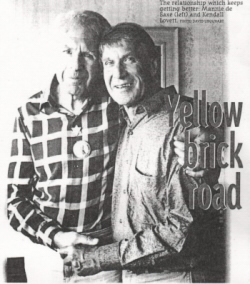
Mannie de Saxe is rarely seen without his pink on yellow triangles badge.
He bought it in San Francisco after spending time with an uncle in Los Angeles in 1991. It captures a lot about de Saxe — his dedication to political issues and his life as a Jewish and a gay man.
It was perhaps the Jewish tradition of strong family ties which impelled him into a marriage which lasted 31 years and produced three children. This was in Johannesburg, South Africa.
It was there that de Saxe became inspired by the efforts of his Aunt Mary, a lawyer offering legal aid to the desperately oppressed blacks who came to her for assistance. Strong family ties also ensured his contact with Uncle Leo, a lawyer turned sociologist who was instrumental in forming a multi-racial party which was eventually banned, and Aunt Hilda, an anthropologist working among the peoples of what was to become Swaziland.
Let s face it, they would have never forgiven him if he hadn't turned out the way he did.
In Australia, he became a member of the International Socialists who expelled him so he joined the Socialist Action group set up by Eric Petersen, son of MP George Petersen, who fought to get an early gay reform bill through the dismally flat NSW Parliament of the Wran years.
De Saxe didn t know it at the time, but his feet were already on that yellow brick road.
As a member of Socialist Action demonstrating in the Domain, de Saxe was handed a leaflet by the late Neil Sanderson inviting people to another demonstration, this one protesting Thatcher's notorious Clause 28. De Saxe went and was invited by David Fagan of the Gay Solidarity Group to one of the group's meetings.
De Saxe had left his wife a couple of years earlier. The kids were grown up and the marriage hadn't been working.
He became a member of Gay Solidarity. The wide spectrum of this group's reform interests appealed to de Saxe's strong feelings for oppressed people everywhere and he soon found himself in the life he had longed for — gaydom. The years of solitary circling the ice at the old Prince Alfred Park and Canterbury rinks were to stand him in good stead — soon he would be required to roller-blade an entire Sydney Gay and Lesbian Mardi Parade.
De Saxe likes a good demo or parade. One was to lead to a dramatic coming out to his family. Mardi Gras Saturday 1990 saw him carrying the Gay Solidarity banner with another well known activist Michael Schembri. They were part of a march celebrating Nelson Mandela's release from prison. Also there celebrating Mandela's triumph was de Saxe's younger daughter and her boyfriend. She saw Dad. And what he was carrying. And she wanted some explanations She was fine about her gay dad but the older daughter and son have not been so accepting.
It was now five years since de Saxe had left his wife and he had a new life which included plenty of support as a gay man.
Besides, there was serious work to do. ACT UP Sydney was being formed. The medical establishment was not responding fast enough or adequately to meet the needs of HIV patients. More hospital beds were urgently needed and there were delays in releasing potentially helpful drugs. De Saxe was ready.
HIV activism became very important to him. While he was still interested in many other areas of reform, HIV was the issue he concentrated on. In 1992 he did the carers' course with Community Support Network and began spending many hours a week giving practical help as well as companionship to those needing it.
At the same time as he was engaging with caring, de Saxe saw an opportunity to help meet the needs of bereaved people. South Sydney Council was doing work on Sydney Park. After a year of negotiations, de Saxe got the council to see the value of the Sydney Park AIDS Tree Planting Project which gives people an opportunity to plant a tree to commemorate those who have died from AIDS. The project's eighth planting was held earlier this month.
In the meantime, de Saxe's personal life had been developing in an interesting manner.
Kendall Lovett, the quietest and most industrious of gay activists had been noticing, as they say, de Saxe for a while. Lovett's interests in reform are as wide as de Saxe's — he too is not afraid to commit himself to efforts to make the world a better place. Those of us who know both of them see it as a partnership which was simply destined to be. Lovett invited de Saxe to the theatre one night then suggested — as it was a bit late for de Saxe to be going all the way home to the suburbs — that it might be a good idea if he came back and spent the night. And it started from there.
De Saxe says the relationship just keeps getting better.
Both retired — de Saxe from teaching Mechanical Engineering and Lovett from his work at the Australian Consumers' Association — Lovett moved from his long-time address in Crown Street to Newcastle. De Saxe and Lovett now spend the end of each week together at one or the other's house. It seems an ideal arrangement for them. Certainly the Hunter and the Metropolitan areas benefit from it.
This month, de Saxe is to graduate with a Master's degree in Health Science (HIV Studies) from the University of Western Sydney.
He also turns 70.
Nothing about his familiar figure suggests he is thinking of slowing down. Without gyms, cosmetic surgery or any kind of narcissistic dedication, he glows. His eyes sparkle and dance with humour, his complexion is radiant. He wears shorts to some effect. He is everywhere, interested and having a good time, or intent on getting something worthwhile achieved.
He dreams of a trip back to South Africa to see for himself how things have changed and to visit the places he didn't get to when he lived there.
Dear de Saxe, no matter where your life takes you next — Bon Voyage
SYDNEY STAR OBSERVER Thursday October 17, 1996

Since 1994, more than 8,000 trees have been planted in Sydney Park to commemorate those who have been lost to AIDS. With many of trees now fully grown, it has become a space for the community to remember and reflect.
Go to any city or town in Australia and you’ll find one – a war memorial. Very often, more than one. Our country’s history of fighting in conflicts all over the globe is reflected in a multitude of plinths, plaques and statues from coast to coast. But the message of ‘lest we forget’ is not just applicable to those who’ve died in armed military conflict. It could just as well apply to those lost in the greatest battle the gay community has faced in living memory: HIV/AIDS.
Mannie De Saxe and his partner Kendall Lovett understand this only too well.
The long-term couple of over sixteen years’ standing, both in their eighties, are the men behind SPAIDS – the Sydney Park AIDS Memorial Groves.
After years of volunteering for ACON’s Client Services Network (CSN) – which provides home care services like cleaning and shopping to people debilitated by HIV/AIDS – the pair decided to establish a permanent memorial to those lost to AIDS.
“We just felt it was imperative that there be some sort of permanent memorial to the men who had passed away from this terrible disease,” De Saxe tells SX. “A peaceful place for partners, friends and relatives to remember their loved ones, and a place to remind our community of the battle we’ve gone through, and the battle we still face. But we didn’t want it to be a stark or sad place, we wanted it to be beautiful.”
De Saxe and Lovett certainly achieved their aim. Since establishing the SPAIDS groves in 1994, over 8,000 trees have been planted in Sydney Park to commemorate those who have been lost to AIDS. It’s now a veritable oasis; a beautiful forest rising above the relentless urbanity of Sydney’s inner-west.
At the centre of the forest, on one of the park’s many hills, is the reflection area, which features a plaque simply stating the purpose of the area, and a plinth to provide a focal point. “We were very lucky with the groves, because we got in at the ground floor,” says De Saxe, explaining that in the early 1990s, he and Lovett approached the then South Sydney City Council to have SPAIDS included in the 44 hectare Sydney Park, being developed over an old rubbish tip and the detritus of a former brickworks.
De Saxe and Lovett have since moved to Melbourne, where they have successfully lobbied the guardian of the Fairfield AIDS Garden to maintain it properly. But the couple come back at least once a year for tree plantings (held annually on National Tree Day – in late July or early August each year), and people utilise the space year-round, especially on or around December 1 (World AIDS Day), just as De Saxe and Lovett intended.
One such person is Greg McGuirk, who is helping organise a picnic at the SPAIDS Groves on the Sunday before World AIDS Day (this Sunday, November 29).
“The picnic is a completely grassroots event,” he tells SX. “It’s basically whatever you want it to be: commemorating a loved one who’s passed on, remembering the significance of HIV and its impact on our community, or just celebrating life and being alive and enjoying a beautiful space.”
McGuirk is also hoping that the City of Sydney will come to the party, in terms of affixing HIV red ribbons to the famous chimneys in the north-western corner of Sydney Park, as they’ve done in some previous years, and as they do with Christmas decorations each December – however SX was unable to garner a response from the City on its intentions. Regardless, it’s not political or other bodies that are behind the SPAIDS Groves or the picnic there this weekend. SPAIDS is completely grassroots, says De Saxe, and it was established and continues despite of a total lack of support from our HIV/AIDS bodies.
“ACON, the Bobby Goldsmith Foundation, PLWHA (now Positive Life NSW) – none of them have ever supported SPAIDS one iota,” says De Saxe. “We had to do it all ourselves with the help of volunteers – however kudos must go to the former South Sydney Council for giving us the space, and to the City of Sydney for the upkeep of the area. It’s looking beautiful.
“But it is disappointing that our AIDS bodies aren’t interested. It comes down to typical gay politics, I guess. It wasn’t their idea, so they’re not interested. But it’s there, and people are using it and in the end, I suppose that’s the main thing.”
It is indeed.
The 2009 World AIDS Day Picnic will be held in the SPAIDS Groves, Sydney Park, Alexandria, from 12 midday to sunset on Sunday, November 29 (2009). All welcome. BYO food and drink.
For more information on SPAIDS, visit: http://www.josken.net/spaids1.htm

A friend of ours who works in Newcastle intermittently was in a cafe in that city about a week ago and when she was sitting drinking coffee she saw a rack with the free Avanti postcards. She was astonished to see a picture of her two very old friends, Kendall Lovett and Mannie De Saxe, but didn't think to take any of the cards. However she went back a few days later and took some of the cards and sent us a few. Here is the card, which is basically about carers:
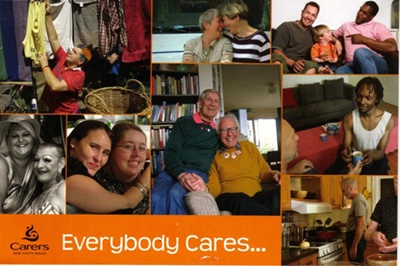
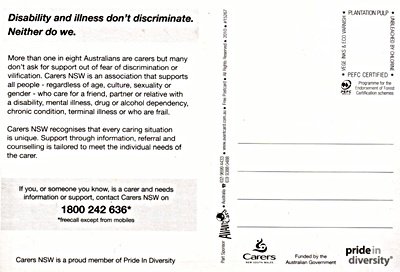

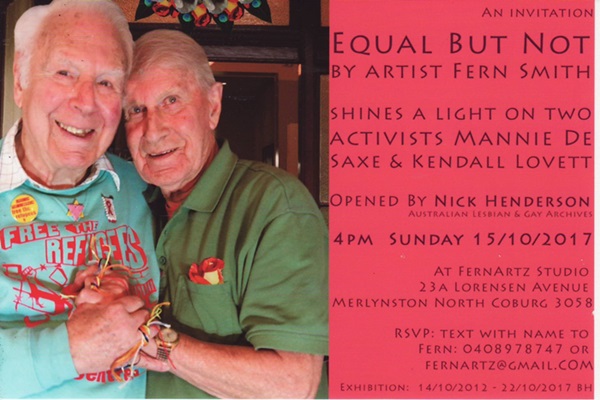
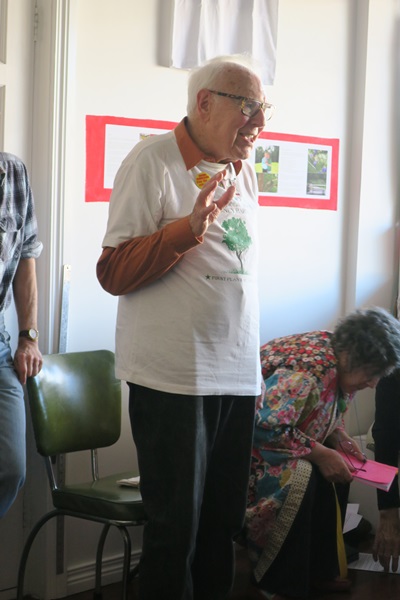
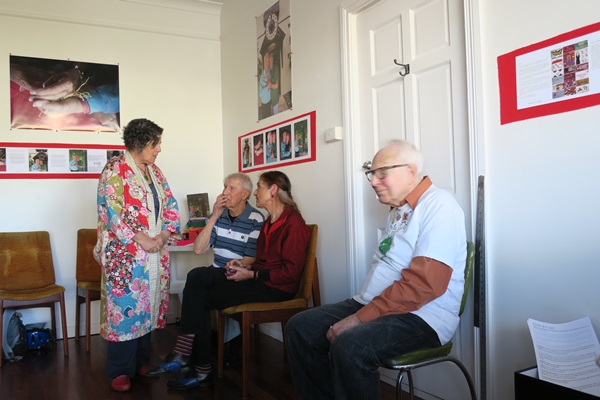
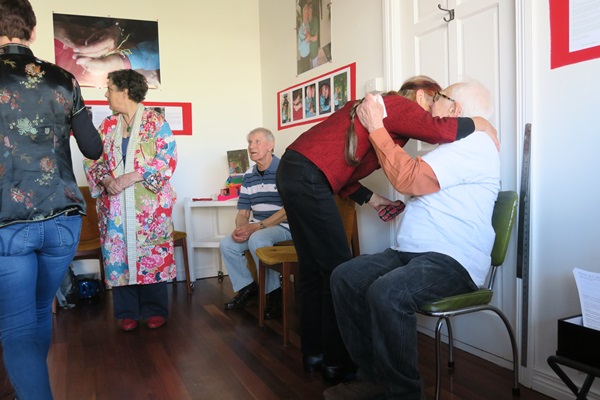
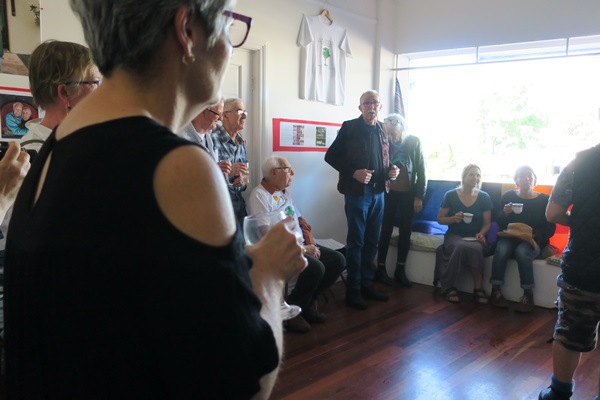
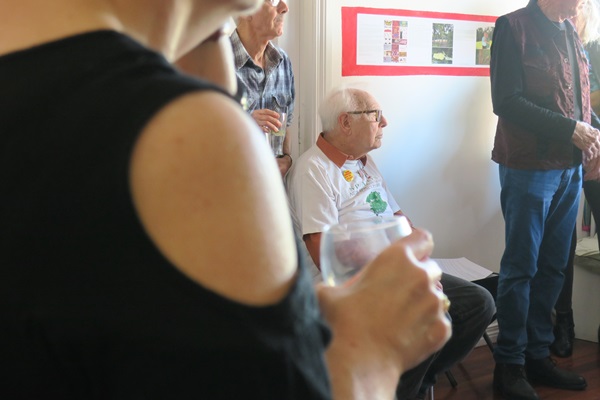
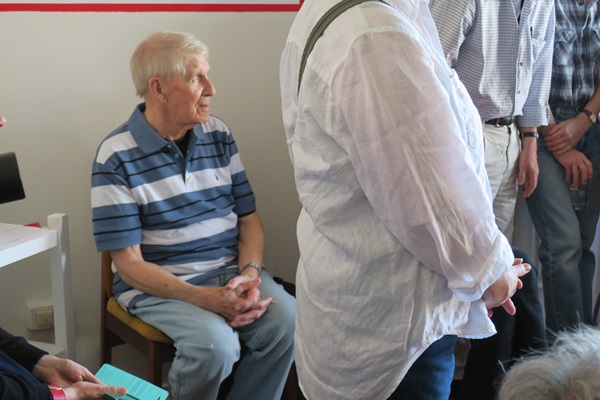
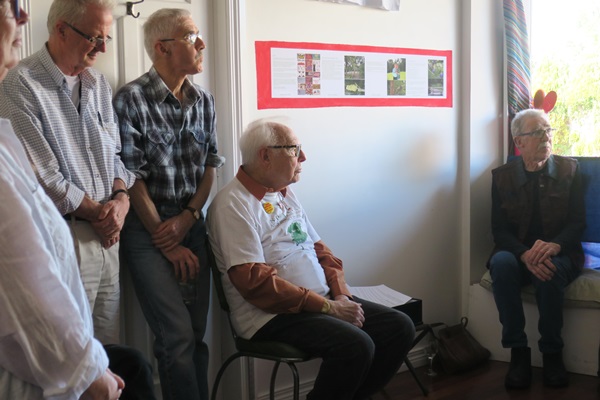
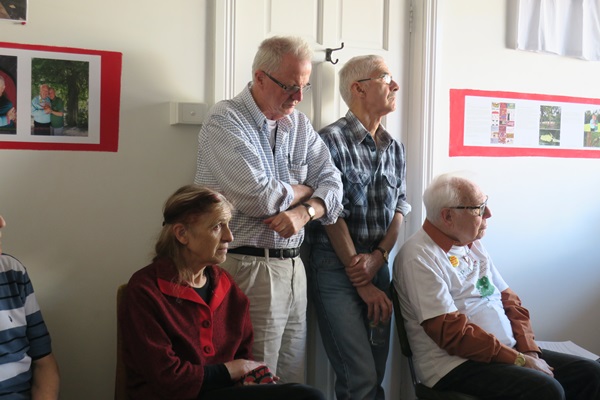
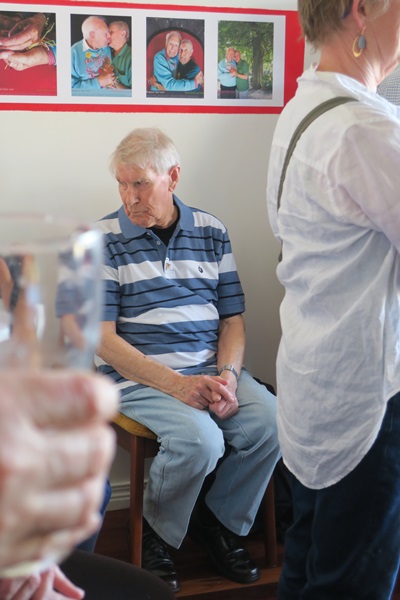
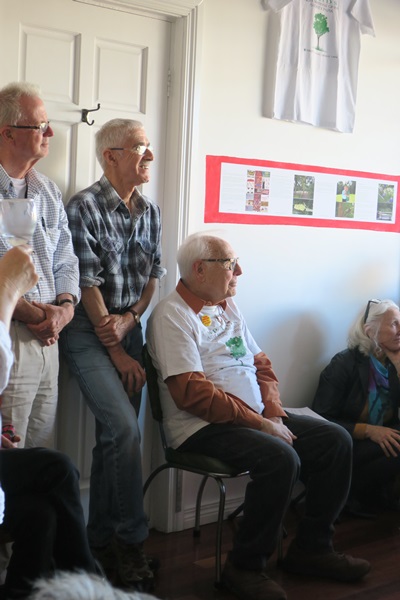
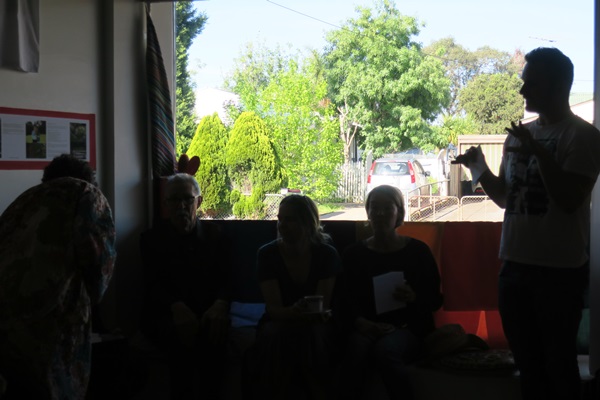
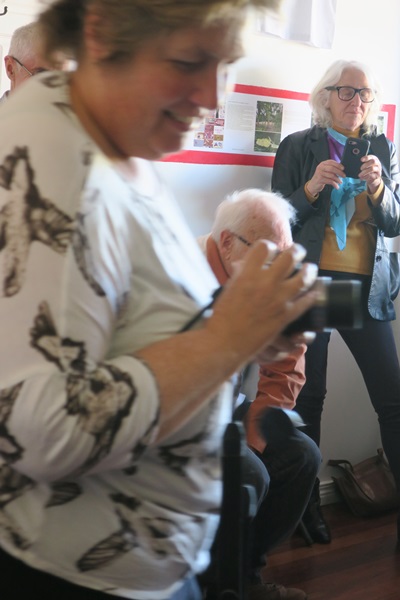
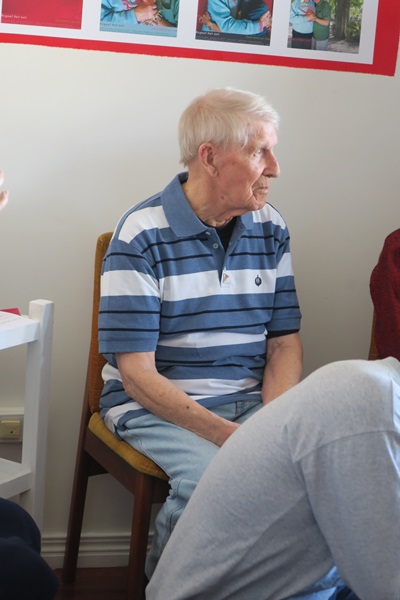
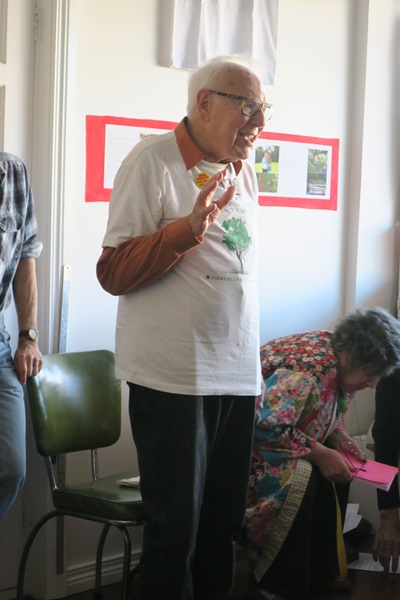
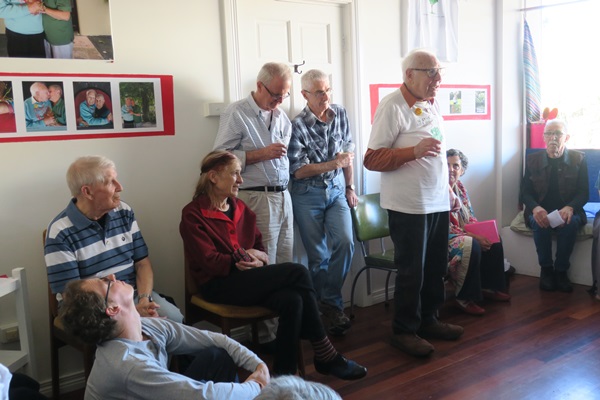
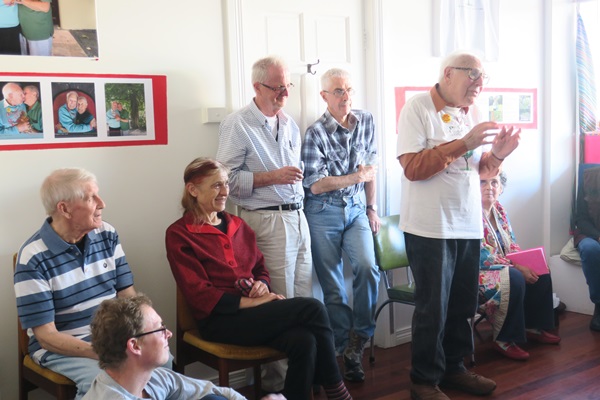
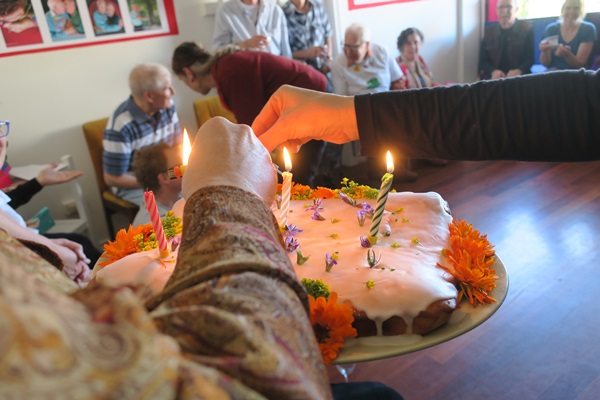
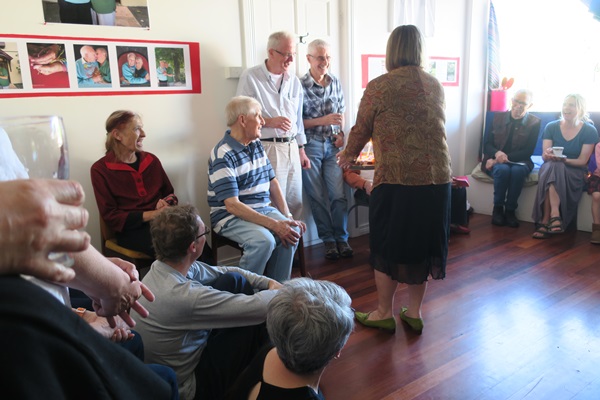
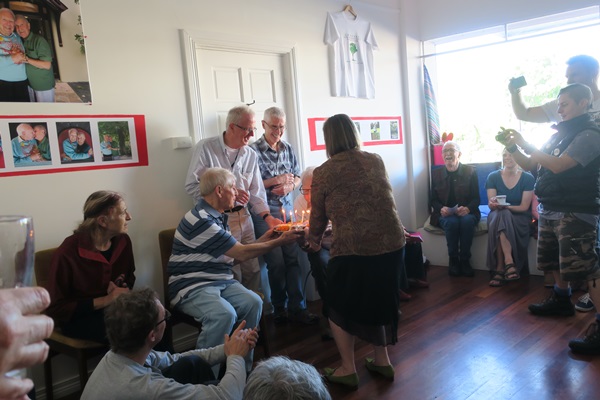
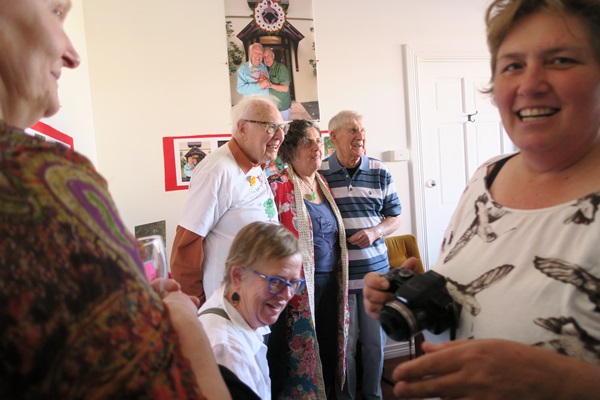
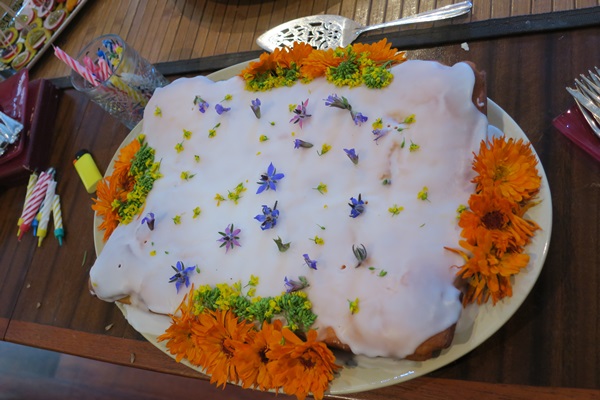
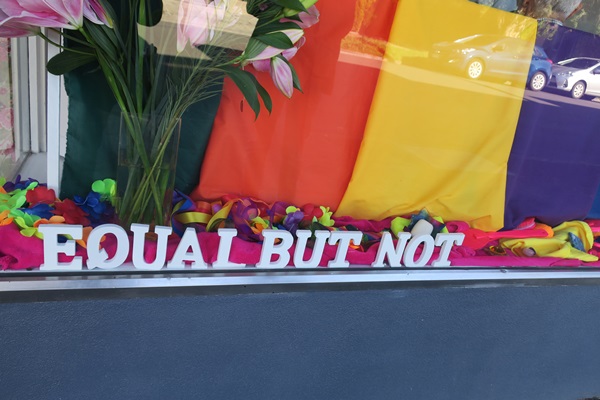
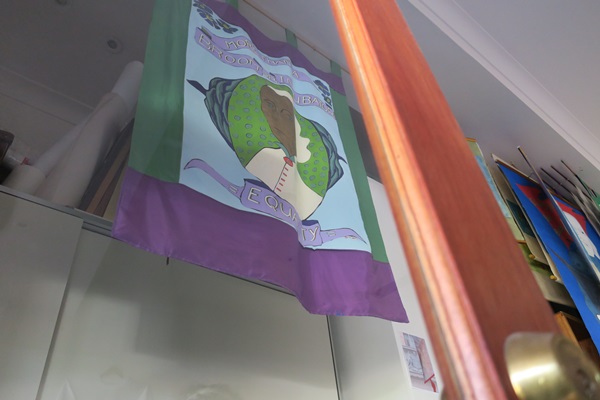
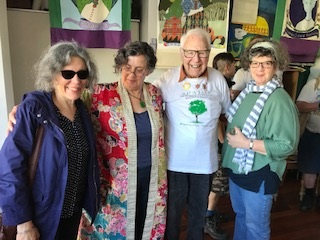
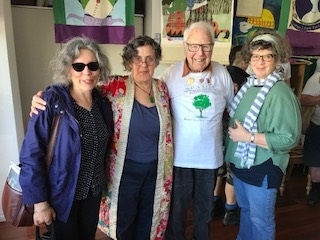
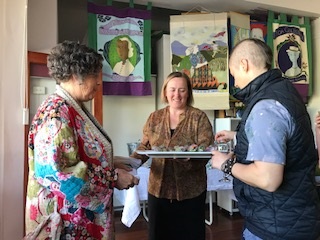
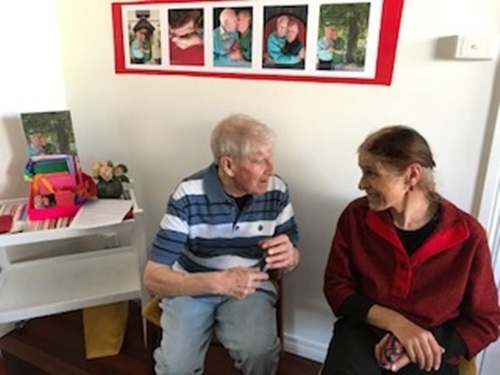
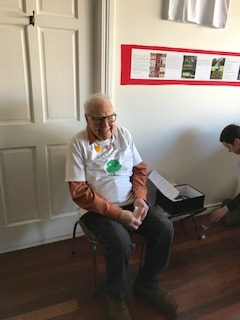
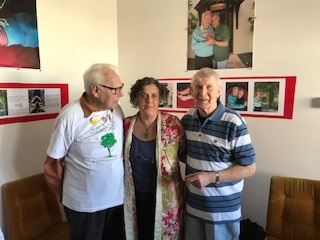
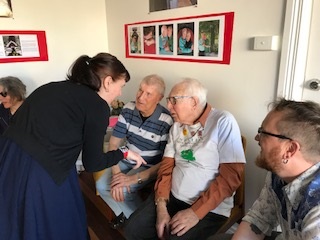
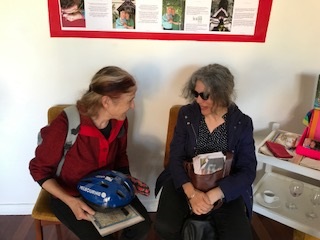
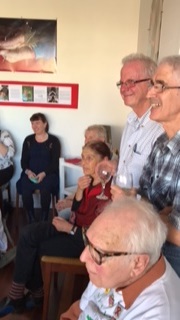
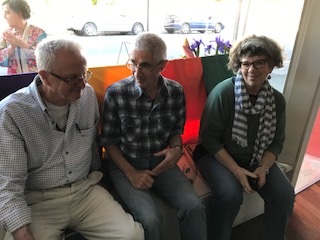
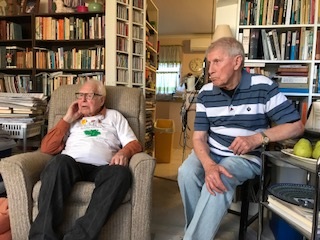

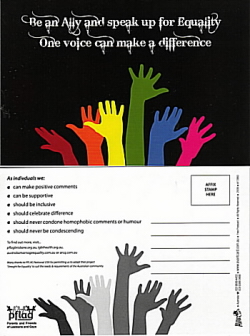

Mannie De Saxe also has a personal web site, which may be found by clicking on the link: RED JOS HUMAN RIGHTS ACTIVISM
Mannie's blogs may be accessed by clicking on to the following links:
MannieBlog (from 1 August 2003 to 31 December 2005)
Activist Kicks Backs - Blognow archive re-housed - 2005-2009
RED JOS BLOGSPOT (from January 2009 onwards)

This page was updated on 2 DECEMBER 2014 and again on 14 NOVEMBER 2017
PAGE 162